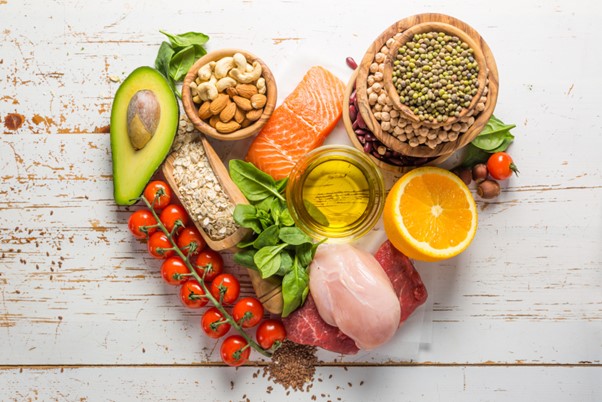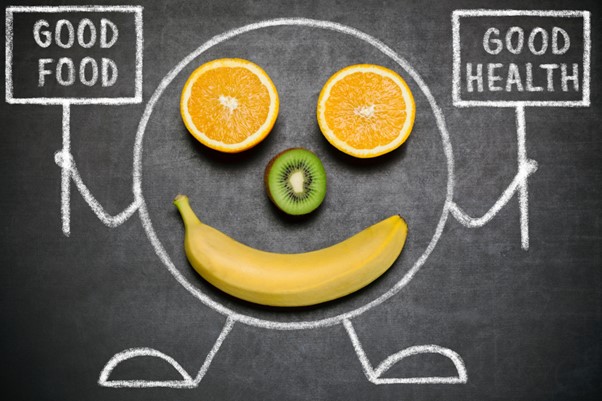How Diet Can Influence Anxiety: A Comprehensive Guide

How Diet Can Influence Anxiety: A Comprehensive Guide
Introduction
Anxiety disorders are among the most common mental health issues globally, affecting millions of people. While therapy and medication are often the first lines of treatment, emerging research suggests that diet can play a crucial role in managing anxiety. This article explores the connection between diet and anxiety, highlighting key foods to include and avoid for better mental health.
The Connection Between Diet and Anxiety
Nutritional Impact
Diet has a significant impact on brain function and overall mental health. Certain nutrients are crucial for brain health and can influence anxiety levels. For instance, deficiencies in magnesium, B vitamins, and omega-3 fatty acids have been linked to increased anxiety. Magnesium, found in leafy greens, nuts, and seeds, has calming properties and can help reduce anxiety. Omega-3 fatty acids, present in fatty fish like salmon and mackerel, are known to improve mood and reduce anxiety [3].
Gut-Brain Axis
The gut-brain axis refers to the connection between the gut microbiome and the brain. A healthy gut can positively influence mood and anxiety levels. Probiotics and prebiotics, found in fermented foods and fiber-rich foods, support gut health and may reduce anxiety. The gut microbiome’s health can impact inflammation and the production of neurotransmitters, which are vital for regulating mood [7].
Foods That Help Reduce Anxiety
Leafy Greens
Leafy greens like spinach and kale are high in magnesium, a mineral known for its calming properties. Magnesium deficiency has been associated with higher anxiety levels.
Fatty Fish
Fatty fish such as salmon, mackerel, and sardines are rich in omega-3 fatty acids, which have been shown to reduce anxiety and improve mood [3].
Nuts and Seeds
Nuts and seeds, especially chia seeds, flaxseeds, and walnuts, are excellent sources of omega-3 fatty acids and magnesium.
Whole Grains
Whole grains like oatmeal, quinoa, and brown rice are complex carbohydrates that can increase serotonin levels, a neurotransmitter that helps regulate mood and anxiety.
Foods to Avoid
Sugary Foods and Drinks
High sugar intake can lead to fluctuations in blood sugar levels, which can trigger anxiety symptoms. It’s best to avoid sugary snacks, sodas, and excessive fruit juices [5].
Caffeine
While moderate caffeine consumption is generally safe, excessive intake can increase heart rate and induce anxiety. Consider limiting coffee and caffeinated beverages.
Alcohol
Although alcohol may initially seem to reduce anxiety, it can interfere with sleep and worsen anxiety over time. Limiting alcohol consumption is advisable for those prone to anxiety.
Practical Tips for Managing Anxiety Through Diet
1. Eat Regular Meals
Skipping meals can lead to low blood sugar levels, which may cause feelings of anxiety. Maintaining regular meal times helps stabilize blood sugar, which can improve mood and reduce anxiety symptoms. Eating balanced meals that include proteins, healthy fats, and complex carbohydrates ensures a steady release of energy throughout the day [9].
2. Stay Hydrated
Dehydration can negatively affect mood and cognitive function, leading to increased anxiety and irritability. Drinking enough water throughout the day supports brain function and helps manage anxiety. Aim for at least eight glasses of water daily, and consider more if you are active or live in a hot climate [11].
3. Incorporate Variety
A varied diet ensures that you get a wide range of nutrients essential for mental health. Include different fruits, vegetables, lean proteins, whole grains, and healthy fats in your meals. This not only provides essential vitamins and minerals but also supports gut health, which is linked to better mood and reduced anxiety [8].
4. Mind Your Portions
Eating too much or too little can both negatively impact your mood. Overeating can lead to sluggishness and discomfort, while undereating can cause low blood sugar and irritability. Pay attention to your body’s hunger and fullness cues to maintain a balanced diet. Eating smaller, more frequent meals can help stabilize blood sugar levels and keep anxiety at bay [10].
Conclusion
Diet plays a pivotal role in managing anxiety. By incorporating nutrient-rich foods and avoiding those that can exacerbate symptoms, individuals can improve their mental health and overall well-being. While diet alone may not cure anxiety, it is a powerful tool that, when combined with other treatments, can provide significant relief.
🌐 Sources
- Butterfly Foundation – Support for Eating Disorders and Body Image
- NCBI – Diet and Anxiety: A Scoping Review
- Mayo Clinic – Coping with anxiety: Can diet make a difference?
- Harvard Health – Nutritional strategies to ease anxiety
- WebMD – Foods to Avoid If You Have Anxiety or Depression
- PubMed – Diet and Anxiety: A Scoping Review
- Dietitians Australia – Mental health including anxiety and depression
- Harvard Health – Nutritional strategies to ease anxiety
- Mayo Clinic – Coping with anxiety: Can diet make a difference?
- Washington Post – 7 brain foods that can help you beat anxiety
- Harvard Health – Eating well to help manage anxiety: Your questions answered








Responses